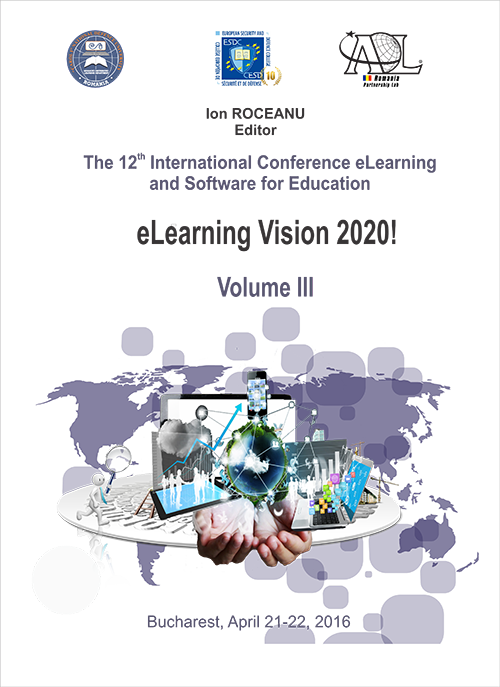REUSE MODELS FOR GENERATIVE E-LEARNING CONTENT DEDICATED TO COMPUTER SCIENCE DISCIPLINES
REUSE MODELS FOR GENERATIVE E-LEARNING CONTENT DEDICATED TO COMPUTER SCIENCE DISCIPLINES
Author(s): Ciprian-Bogdan ChirilăSubject(s): ICT Information and Communications Technologies, Sociology of Education
Published by: Carol I National Defence University Publishing House
Keywords: generative learning objects; meta-programing; computer science;
Summary/Abstract: Nowadays the e-learning domain has different development directions. Learning management systems (LMS) tend to integrate standardized content like: Shareable Content Object Reference Model (SCORM), Aviation Industry Computer Based Training Committee (AICC), etc. In products like Storyline 2 and Studio'13 the focus is set on the development of content based on slides. They start from Microsoft PowerPoint slides and enhance it with several facilities like: narrations, annotations, motion paths, screen recordings, videos, iterations, conditional interactions, simulations, language support. Another focus of these products is set on content publishing to various platforms like iPads, Android tablets etc. The Captivate e-learning content authoring tool contains facilities like: to create content for iPads and tablets with responsive design, storyboards based on slides, multiple choice templates, text, image and video galleries, sync with the cloud, e-mailing facilities of the just created story boards, the content is expressed as a Flash clips and HTML5 web pages played on most of the browsers. xAPI is a flexible specification allowing to track informal learning, social learning and real world experiences. The recording format is a very generic one in the form of actor, verb and object memorized in a learning record store (LRS). SCORM (Shareable Content Object Reference Model) is a set of standards for e-learning software in order to increase integration of e-learning content.
Journal: Conference proceedings of »eLearning and Software for Education« (eLSE)
- Issue Year: 12/2016
- Issue No: 03
- Page Range: 21-27
- Page Count: 7
- Language: English

